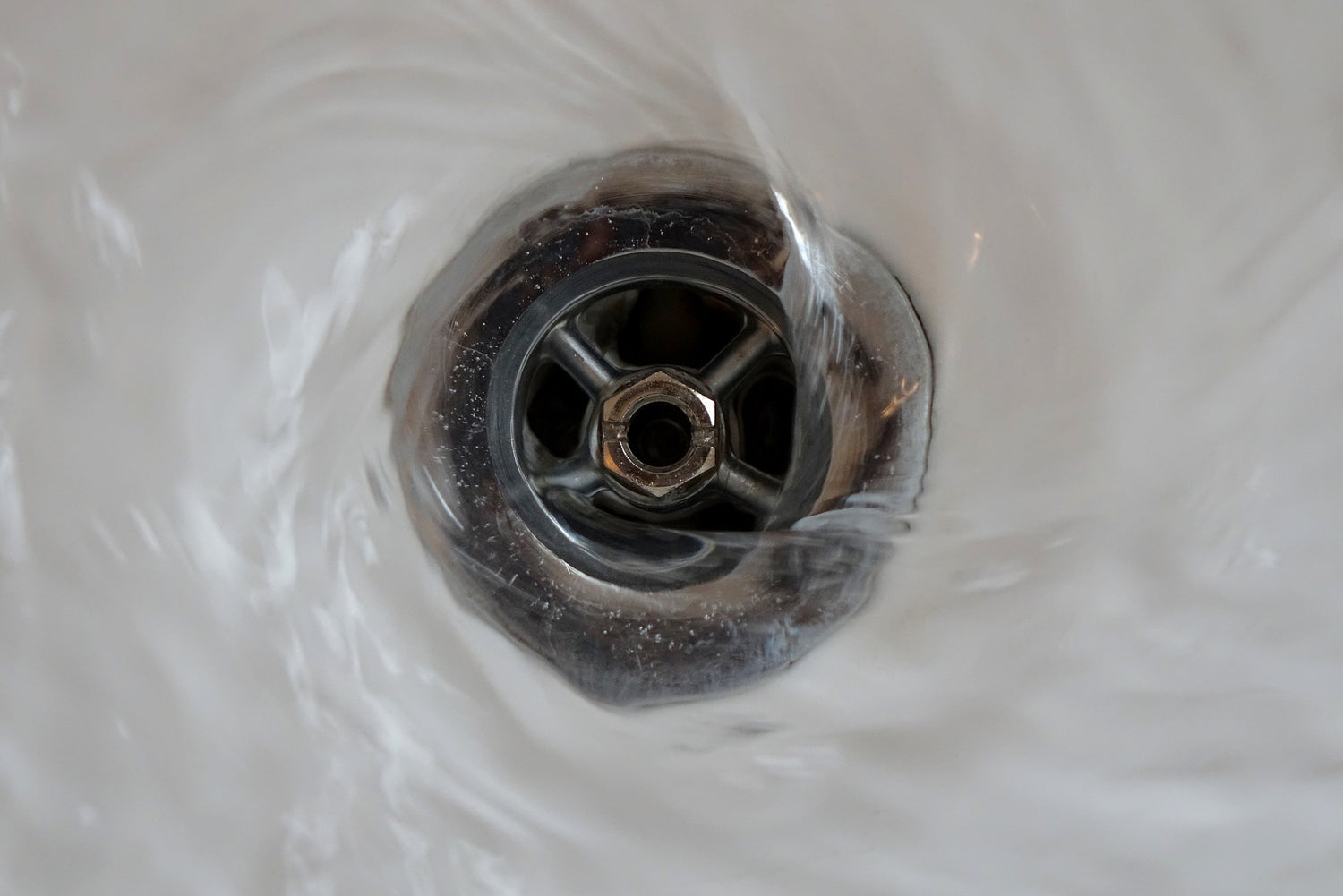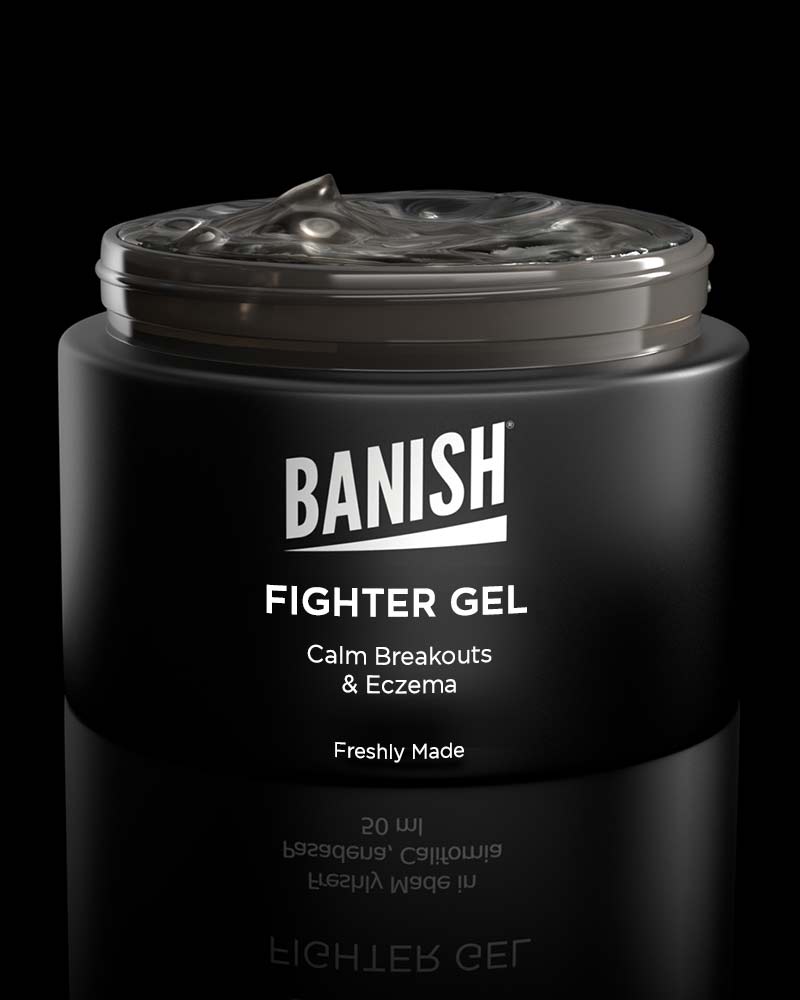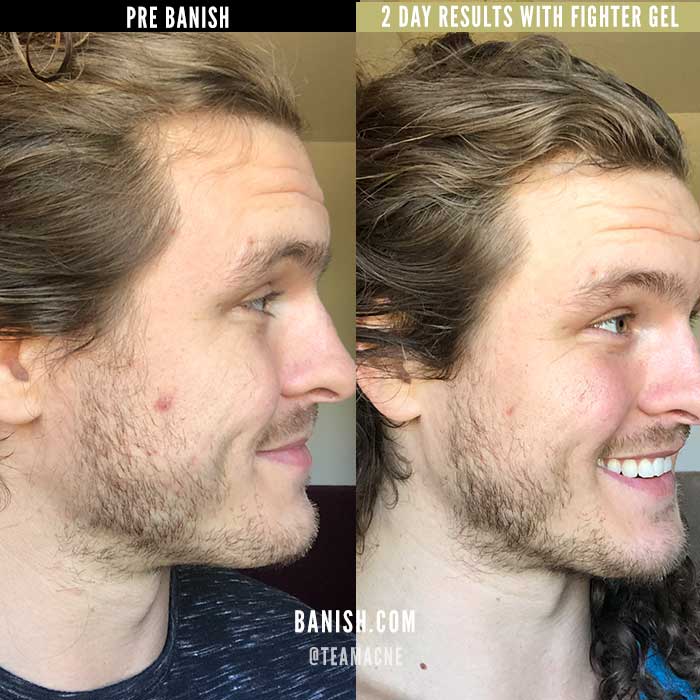When it comes to acne we tend to look at the most obvious reasons our skin is rebelling against us – genetics, skincare, makeup, and our diet. We can try changing our products, see doctors, alter our eating habits and still be left with a seemingly never-ending onslaught of breakouts.
A combination of things may indeed be causing our skin to explode with pimples – I for one cannot use products that contain olive oil and I know that if I eat fake chocolate, like Hershey's, I'm going to regret it – but surprisingly the water we use on our skin may very well be the culprit, if not an antagonist, to our skin woes.
When we cleanse our skin we assume that we're ridding our skin of impurities, but the truth is that the water we're using may be ADDING impurities instead of removing them, leading to breakouts, clogged pores, dry skin, and irritation.
#1: Hard Water
Hard water contains high levels of minerals such as calcium and magnesium. These minerals may be beneficial for our bodies in moderation, but it wreaks havoc on our skin. These minerals disrupt the skin's protective barrier, acting like free radicals that promote the breakdown of collagen and leave our skin more vulnerable.
Limescale is a huge indicator that you have hard water in your home. If your shower heads, shower doors, faucets, tubs, drains etc. get a grody white film that can drive a person mad to clean off...you've got hard water.
When you wash your face with hard water, the scum you see on your shower doors is also left on your skin. When that scum mixes with your skincare products it clogs your pores by increasing sebum production and causes sebum to become hard and waxy which makes hard water cause acne.
Hard water is filled with chemicals and metals that are harsh on your skin, also making it harder for beauty products to get completely washed off.
It leaves a film over your skin so when you are washing your face thinking that you are deep cleansing, in reality, you’re not even cleansing your skin fully. There are ways to combat this and test out the theory if the water is causing your acne to test it by trying these many ways to changing your skin by changing your water.
The high mineral content in hard water essentially prevents your products from working and can cause changes to the pH of your skin, causing it to become more acidic which then leads to hard water cause acne.
#2: Chlorine and Chloramines
Chlorine is added to public water systems as a disinfectant in order to kill disease-causing viruses, bacteria, and organisms and prevents the spread of water-borne illnesses. This is all well and good except for one thing – chlorine is highly toxic.
Chlorine causes skin irritation and can exacerbate conditions like eczema and rosacea and causes dry, flaky, and blotchy skin. The good news? Chlorine does evaporate naturally over a period of time. The bad news? Most water systems are now using chloramines – chemical compounds of chlorine and ammonia – which disinfects longer than chlorine alone but cannot be removed from water without specialized (i.e. expensive) filtration systems designed to filter chloramines.
There is much debate over the safety of chloramines. Though the amount regulated in public water systems is deemed safe, there have been no studies to determine whether chloramines cause skin irritation. Many reports that chloramines cause rashes, scaling and flaking of the skin, oozing of the skin, and asthma-related respiratory distress when inhaled in a shower.
If chlorine is a known skin irritant and it's being combined with ammonia (also toxic), deductive reasoning would assume that chloramines are likely not fabulous for our skin. Unfortunately, there isn't much we can do about it unless we get a shovel and start digging a well or pay $5k+ for a specialized filtration system.
#3: Pesticide Runoff
Depending on your location, the runoff from pesticides used in farming and agriculture can be an issue. These pesticides can be released back into the water system. Though regulations require incremental testing of public water systems to ensure they are meeting safety standards, there are still levels of these pesticides that are legally permitted and deemed as safe levels.
Unfortunately, these pesticides and agents can cause bio-accumulation, which means that prolonged and consistent exposure causes them to build up in our bodies by being absorbed through the skin.
These pesticides have been shown to interfere with the endocrine and immune systems (among other health concerns) which are responsible for hormone levels and our bodies natural ability to fight off illness. When our hormone levels are disrupted or altered, we break out. This is why females tend to break out during that time of the month when our hormone levels change.

What Are Our Options?
There are quite a few things we can do to see if our water is contributing to our skin issues. First, I recommend doing a trial run of not using tap water on your face for at least two weeks and up to 30 days. Yes, this includes showering. Though it might be slight pain and require more effort while showering, it can be done.
I recommend removing water from cleansing your face completely during this time and only cleansing with micellar solution (I recommend Bioderma micellar solutions for this because they are the best I have found to replace water for cleansing), cleansing balms for your skin type that do not require rinsing, oil cleansing or non-rinse cleansing oils (again, geared toward your skin type).
Document your skin's behavior and condition daily by creating a skin-log. Sometimes we think we'll remember just how our skin is behaving, but truthfully you may forget specific details by the time the experiment is over. This will allow you to look back and see just how your skin has responded to removing water from your routine.
If removing water from your cleansing routine did not benefit your skin in any way or cause more issues, try using only filtered water to cleanse your skin and repeat the experiment. More often than not, you should see a positive difference in not only the condition of your skin but in the effectiveness of your products.
If you notice limescale and hard water, look into water softeners for your home, or change out your showerheads to filtered shower heads (I recommend Culligan showerheads, but do your research and choose the best option for you and your home) as well as faucet filters (also by Culligan). Unfortunately, these filters will not remove chloramines or pesticide contaminants, but they will greatly improve your water quality and filter out damaging minerals and chlorine.
I also recommend looking into your water district's reports. If you're concerned about mineral levels, chloramine levels, or pesticide levels you can contact them for further information or possible testing of the water in your home.
My Water Struggles
When I lived in California I changed out all my fixtures for filtered fixtures after noticing how dry, blotchy and itchy my skin was and how dry and brittle my hair was becoming. It made such a huge difference in the overall condition of my skin and hair. My skin no longer looked blotchy, was no longer dry and itchy, and my hair became softer and less frizzy.
Unfortunately, it didn't do much for breakouts or clogged pores (though it did help the overall feel of my skin) and I ended up conducting a no-water experiment. I found that my skin responded really well to it. I only cleansed my skin with micellar solution and my skin became clearer and breakouts became limited to hormonal breakouts.
I cleansed only with the micellar solution until my husband and I moved to Texas. I'm not exactly sure why I decided to start using tap water again, but I did...regrettably. Since moving to Texas I have acquired an irritation on my chin that I just can't seem to kick. It flares up, reddens, breaks out, scabs over and leaves my skin in a constant state of having to heal itself before it happens again, leaving an almost permanent redness behind.
I've seen a dermatologist and used medications that haven't worked, and I've spent a fortune on products in pursuit of clearing it. I've thought it was attributed to medications, makeup, allergies in a new environment, something I was eating, etc. but have not succeeded in getting it to clear regardless of what I changed or eliminated.
It has finally occurred to me that it may very well be the water I'm using. It should have been an obvious adjustment for me to make, but for some reason, water was the last thing on my mind. It makes sense that this issue I can't seem to eradicate may very well be attributed to the water since it's the primary thing that has changed.
In an attempt to clear it for good, I'm returning to the no-water cleansing method as well as changing out all of the fixtures in my home to filtered fixtures (even though the fixtures were replaced before moving in). I can't say for certain if this change will clear this up as of yet, but what Ido know is that my skin is already feeling healthier and calmer which is an extremely positive sign.
It is also important to remember to shower with lukewarm water, not hot water this can damage your skin by drying it out, breaking capillaries. If you shower with lukewarm water this will help to open your pores, making it perfect for washing your face and getting a deep cleanse. When you are finished turn your water to a cool temperature to close your pores and finish by using a rosewater toner or spray!
























Leave a comment
All comments are moderated before being published.
This site is protected by hCaptcha and the hCaptcha Privacy Policy and Terms of Service apply.